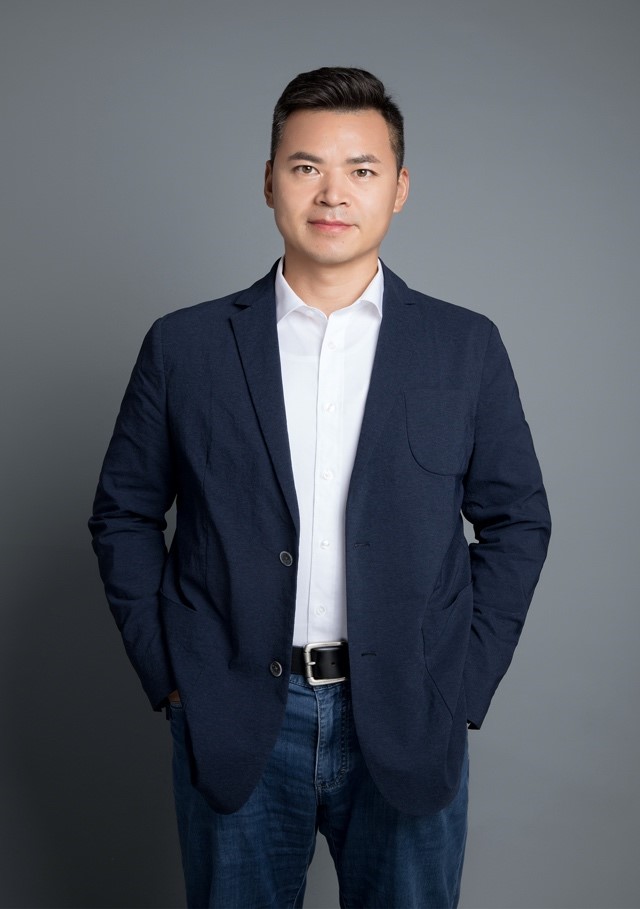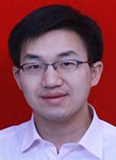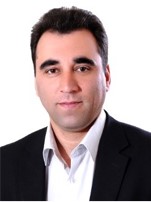
SPEAKERS |
| Keynote Speaker |
| Keynote Speaker | |
| Prof. Assaf Schuster, ACM Fellow&IEEE Fellow, Israel Institute of Technology, Israel Prof. Assaf Schuster of the Computer Science Department is the head of the new AI center at the Technion. He is a Fellow of the ACM and the IEEE, with more than 200 published papers in highly selected venues. His interests and publications are in the wide scope of distributed and scalable data mining, big and streaming data technologies including management, analytics & prediction, cyber security and system/IoT vulnerabilities, privacy preserving, cloud resource management and more. He consulted leading hi-tech companies and participated in the bumpy journey of several startups, two of which he co-founded. Title:AI-driven ECG analysis via BeatBox AI smartphone application Abstract:BeatBox AI is a novel platform for automating the interpretation of 12-lead ECGs, the leading diagnostic technique for cardiac conditions. Automating ECG interpretation is crucial for easing the burden on healthcare professionals and enhancing the accuracy and efficiency of cardiac diagnosis. BeatBox AI exhibits a promising degree of self-optimization and generalizability across different healthcare clinical settings, achieving unprecedented diagnostic accuracy for a the widest ever range of diagnosable cardiac conditions, offering explainability for its AI diagnostic decisions, and demonstrating an ability to adapt to varying ECG layouts and populations. |
| Prof. Chase Wu, IEEE Senior Member, New Jersey Institute of Technology, USA Chase Wu is currently a Professor and the Associate Chair in the Department of Computer Science and the Director of the Center for Big Data at New Jersey Institute of Technology (NJIT). He joined NJIT in fall 2015 from the University of Memphis, where he is an Associate Professor in the Department of Computer Science. His research interests include big data, high-performance networking, parallel and distributed computing, sensor networks, scientific visualization, and cyber security. His research in networking develops fast and reliable data transfer solutions to help users in a wide spectrum of scientific domains move big data over long distances for collaborative data analytics. His research in computing develops high-performance workflow solutions to manage the execution of and optimize the performance of large-scale scientific workflows in heterogeneous computing environments. Dr. Wu's work has been supported by various funding agencies, including the National Science Foundation, the U.S. Department of Energy, the U.S. Department of Homeland Security, and Oak Ridge National Laboratory, where he is a research staff and works on a number of high-performance networking projects and big-data computational science projects. He has published over 250 research articles in highly reputed conference proceedings, journals, and books, and won best paper awards at many conferences. |
| Prof. Lu Leng, School of Software, Nanchang Hangkong University, China LU LENG received his Ph.D degree from Southwest Jiaotong University, Chengdu, P. R. China, in 2012. He performed his postdoctoral research at Yonsei University, Seoul, South Korea, and Nanjing University of Aeronautics and Astronautics, Nanjing, P. R. China. He was a visiting scholar at West Virginia University, USA, and Yonsei University, South Korea. Currently, he is a full professor at Nanchang Hangkong University. Prof. Leng has published more than 100 international journal and conference papers, including about 60 SCI papers and three highly cited papers. He has been granted several scholarships and funding projects, including five projects supported by National Natural Science Foundation of China (NSFC). He serves as a reviewer of more than 100 international journals and conferences. His research interests include computer vision, biometric template protection and biometric recognition. Prof. Leng is an outstanding representative of "Innovation Talent" of Jiangxi Enterprise in "Science and Technology China" in 2021, received "Jiangxi Youth May Fourth Medal" in 2019, "Jiangxi Hundred-Thousand-Ten-thousand Talent Project" in 2018, "Jiangxi Voyage Project" in 2014, etc. |
| Professor Yingchao Zhang, Sun Yat-sen University, China Zhang Yingchao is a Professor and Doctoral Supervisor in the School of System Science and Engineering at Sun Yat-sen University, China. He received his PhD in management science and engineering from the National University of Technology, China with a focus on the high-performance information integration in the virtual organization. His research interests include Information System Engineering, System of Systems Engineering, Intelligent Decision Support System, and Strategy. Prof Zhang has finished many research works founded be the NSF and other Government departments, focusing on the Intelligent Decision Support System. In recent years, he finished two books, which are “Command and Control System Engineering. Beijing: Defense Industry Press”, “Principle and Technology on System of Systems Engineering. Beijing: Defense Industry Press.” He is also the member of the CSEC. Title:Deep reinforcement learning-based resilience enhancement strategy of unmanned weapon system-of-systems under inevitable interferences Abstract:Unmanned weapon system-of-systems (UWSoS) is a collection of unmanned weapon systems providing multiple interdependent capabilities to support the mission completion. The soaring number of interconnected systems makes UWSoS vulnerable in the face of inevitable uncertain interferences. Thus, devising an effective resilience enhancement strategy is critical to handling inevitable disruption events. However, preventive and protective methods are not all-inclusive because of the high uncertainty operation environment and the lack of autonomy. Hence, we studied the resilience enhancement problem of UWSoS from the recovery perspective based on deep reinforcement learning (DRL). First, a DRL-based resilience enhancement strategy framework is proposed, combining the graph convolution network and proximal policy optimization algorithm to extract the entities’ representation features and autonomously learn the resilience enhancement strategy to handle various interferences scenarios better. Subsequently, a collaboration action resilience contribution index-guided proximal policy optimization algorithm is proposed to improve training efficiency. Finally, extensive simulation experiments and comparisons with five similar algorithms demonstrate the effectiveness, adaptability, and superiority of the proposed strategy. This work could provide valuable scheduling schemes for decision-makers to guide the reliable operation of UWSoSs. |
| Associate Professor Hai Liu,Central China Normal University, China Liu Hai received the Ph. D. degree in pattern recognition and artificial intelligence from Huazhong University of Science and Technology (HUST), in 2014. Since June 2017, he has been an Assistant Professor with the Faculty of Artificial Intelligence in Education, Central China Normal University. He has been engaged in research on self-regulated learning, learning resource recommendation, knowledge graph, computer vision, machine learning and other fields for a long time. He has published more than 50 academic papers in IEEE TNNLS, TII, TMM, TKDE and other well-known journals at home and abroad, including 20 IEEE Trans series in the first district of the Chinese Academy of Sciences, and 8 highly cited papers in ESI. He has applied for or authorized 35 national invention patents, presided over 5 National Natural Science Foundation projects, and 1 sub-project of the "14th Five-Year Plan" National Key Research and development Plan. Dr. Liu has been frequently serving as a reviewer for more than six international journals including the IEEE Transactions on Multimedia, IEEE Translations on Industrial Informatics, IEEE Transactions on Knowledge and Data Engineering. He is also a Communication Evaluation Expert for the NSFC from 2016 to present. He won the first prize of Science and Technology Progress Award by the Hubei Province of China in 2020. Title:Orientation Cues-Aware Facial Relationship Representation for Head Pose Estimation via Transformer Abstract:In this talk, we will report the topic of head pose estimation models via Transformers network. This report is based on our recent study, which is published in IEEE TIP 2023. Head pose estimation (HPE) is an indispensable upstream task in the fields of human-machine interaction, self-driving, and attention detection. However, practical head pose applications suffer from several challenges, such as severe occlusion, low illumination, and extreme orientations. To address these challenges, we identify three cues from head images, namely, critical minority relationships, neighborhood orientation relationships, and significant facial changes. On the basis of the three cues, two key insights on head poses are revealed: 1) intra-orientation relationship and 2) cross-orientation relationship. To leverage two key insights above, a novel relationship-driven method is proposed based on the Transformer architecture, in which facial and orientation relationships can be learned. Specifically, we design several orientation tokens to explicitly encode basic orientation regions. Besides, a novel token guide multi-loss function is accordingly designed to guide the orientation tokens as they learn the desired regional similarities and relationships. Experimental results on three challenging benchmark HPE datasets show that our proposed TokenHPE achieves state-of-the-art performance. Moreover, qualitative visualizations are provided to verify the effectiveness of the token-learning methodology. This article has been published at “H. Liu, C. Zhang, et al., "Orientation Cues-Aware Facial Relationship Representation for Head Pose Estimation via Transformer," IEEE Transactions on Image Processing, vol. 32, pp. 6289-6302, 2023/11/15, 2023.” |
| Professor Dongsheng Yang, Jinan University, China Professor Yang Dongsheng has long been engaged in the teaching, research and practice of command and control, as well as the guarantee research of command information system. He is a professor, postgraduate supervisor and leader of command and control discipline. Charge Assurance Senior engineer; He is a researcher at the State Key Laboratory of Information System Engineering, National University of Defense Technology. |
| Associate Professor Pavel Loskot, Zhejiang University-University of Illinois at Urbana-Champaign Institute, ZJUI, China Pavel Loskot obtained BSc degree in Biomedical Engineering and MSc degree in Radioelectronics from the Czech Technical University of Prague, Czech Republic. He was then Research Scientist and Project Manager in the Centre for Wireless Communications at the University of Oulu, Finland before moving to Canada to earn the PhD degree in Wireless Communications from the University of Alberta. Since 2007, he was a Senior Lecturer in Engineering at Swansea University, UK. He is the Senior Member of the IEEE, Fellow of the Higher Education Academy in the UK, and the Recognized Research Supervisor of the UK Council for Graduate Education. His current research interests lie in applications of statistical signal processing methods to problems in telecommunication engineering and computational molecular biology. Title:Data Objects Beyond Matrices and Graphs Abstract:Linear algebra, multivariate calculus, applied probability and statistics, and convex optimizations are well-established mathematical tools that have been used extensively in many signal processing and data mining applications. They led to developing a wide range of effective numerical algorithms for processing the longitudinal and other higher dimensional data that are organized in vectors and matrices. On the other hand, there are many other mathematical structures such as graphs, tensors, manifolds and so on, which can be used as structures for keeping numerical values. In this talk, I will introduce simplexes in graph signal processing, explain how tensors are different from high-dimensional matrices, define manifolds and topological spaces, and finish with a brief overview of category theory. All these topics can likely enable a new generation of more sophisticated signal processing techniques and methods. |
| Associate Professor Ghamgeen Izat Rashed, Wuhan University, China Dr. Ghamgeen Izat Rashed, an associate professor at the School of Electrical Engineering and Automation, Wuhan University, is also a graduate student advisor. His research focuses on the applications of artificial intelligence in power systems, power system reliability, and smart grids. He has published over 60 SCI and EI indexed papers in core journals and international conferences, and has delivered keynote speeches at more than 30 high-level international academic conferences. Dr. Ghamgeen Izat Rashed is a member of both IEEE and CIGRE, and he has led five international exchange projects, participated in 13 horizontal projects, and one 863 project. Furthermore, he has presided over the development of five university-level quality courses. Title:Optimizing microgrid operations with hybrid renewable energy integration using robust optimization under uncertainties Abstract:Future electricity supply is going to rely on hybrid renewable energy and microgrids. Thus, assessing intermittent output power is crucial to developing long-term, sustainable microgrid operations to fulfill escalating energy demands. To address this, we proposed a robust mixed-integer linear programming model for the microgrid to minimize the day-ahead cost. To evaluate the proposed model, a piecewise linear curve is used to account for uncertainties of wind turbine (WT), photovoltaic (PV), and electrical load. The proposed solution is presented in a case study comparing a robust worst-case scenario and deterministic model optimization that aim to achieving optimal robustness. as a result, a piecewise linear curve is used to obtain uncertain parameters in order to deal with uncertainties and predict the day-ahead cost. This study illustrates how the Uncertainty Budget Set (UBS) selection used to integrate renewable energy sources (RES) into a microgrid, which manages the proposed model. Therefore, the model complexity was slightly modified by adjusting the UBS to obtain the optimal decision and control the load demand and uncertainty of RES. The comparative results demonstrate that the proposed robust optimization can achieve high solutions under microgrid’s availability and is intended to confirm that the proposed method is effective than alternative optimization techniques. Additionally, the effectiveness and advantage of the proposed methodology in the IEEE 33-node system are validated in this case study. The comparison results show that the proposed robust optimization methods illustrate the model’s efficiency, concluding remarks, and managerial insights of the research. |







